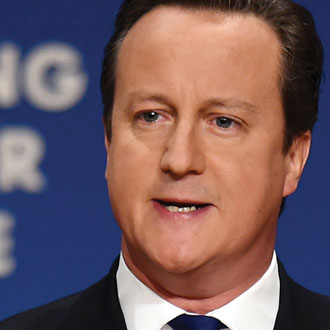Seven-day access will form part of a new voluntary GP contract to be published by the Government, the Prime Minister has announced.
Speaking on the BBC’s Andrew Marr show today, David Cameron announced that the Government ‘will be publishing a new GP contract to get rid of the box-ticking and the form filling’.
Instead, he said, it will focus on ‘making sure that people in our country can get access to a GP on seven day a week basis, 8am to 8pm’.
The contract will be voluntary and offered to practices or federations covering at least 30,000 patients.
The BMA has said that this has not been discussed with them,
NHS England chief executive Simon Stevens also issued a statement saying that they are developing a new voluntary contract for practices to expand and provide primary and secondary care by April 2017.
Mr Cameron told Andrew Marr: ‘I can announce today that we will be publishing a new GP contract to get rid of the box-ticking and the form filling.
‘I don’t think anyone is happy with the GP contract, so this new contract will focus on making sure that people in our country can get access to a GP on seven day a week basis, 8am to 8pm, that’s what we want to see.’
He added: ‘Already because of the steps we have taken, a third of people are accessing the NHS on that basis by next year, but we want it for everybody and that new GP contract will help deliver that.’
A DH press statement said: ’The new contract will be voluntary, with federations or practices that cover populations of at least 30,000 patients.
It added: ’The new contract will be offered to GPs on a phased basis, starting with those groups of GPs that are most ready to work in this new way and building on the success of the pioneering Prime Minister’s Challenge Fund for GP access and the NHS vanguards.’
GPC chair Dr Chaand Nagpaul said that the announcement was ’not discussed with the BMA’, and does ’nothing to address the root causes of the pressures on general practice’.
He referenced Pulse’s investigation last week showing that due to poor uptake of seven-day services, eight of the original 18 ‘Challenge Fund’ pilots have reducing their opening hours.
He said: ’The Government must learn from its own pilot schemes where there have been a number of examples of weekend appointments having little or no pick up by patients. These proposals could waste precious NHS resources and divert staff and funds from overstretched core GP services.
’While getting rid of the box ticking of QOF is something the BMA has long been calling for, this should apply to all practices. It would be wholly wrong if this is being used as a carrot to only benefit patients for those practices considering the new GP contract.
’Crucially, we do not need the diversion of a new contract, we need proper levels of investment in GP services, and thousands more GPs and staff to keep up with the sheer number of patients coming through the door in order to provide safe, quality care.’
The announcement comes a Pulse investigation last week showing that due to poor uptake of seven-day services, eight of the original 18 ‘Challenge Fund’ pilots have reducing their opening hours.
At the same time, Mr Stevens announced that a new ‘voluntary’ GP contract will be developed to enable practices to work in bigger groupings and follow the lead of some of the ‘vanguard’ projects around the country that are piloting providing a wider range of secondary care and community services.
He said: ‘Many family doctors are now… wanting to pool their sovereignty and work in federations, super practices and our new vanguard care models.
’To support that, they are asking NHS England for a new contract option, which will combine core general practice with wider primary community and health services, serving larger populations.
‘So NHS England will now work with GPs – through the vanguard programme and beyond – to develop a new voluntary contract by April 2017.’
NHS England said in July that GPs would be offered ‘simple and attractive’ conditions to encourage them away from the national contract and join the ‘new models of care’ that are being tested across the country.
Pulse October survey
Take our July 2025 survey to potentially win £1.000 worth of tokens












